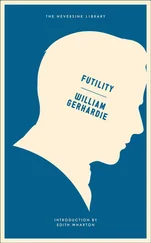William Gerhardie - The Polyglots
Здесь есть возможность читать онлайн «William Gerhardie - The Polyglots» весь текст электронной книги совершенно бесплатно (целиком полную версию без сокращений). В некоторых случаях можно слушать аудио, скачать через торрент в формате fb2 и присутствует краткое содержание. Год выпуска: 2013, Издательство: Melville House, Жанр: Классическая проза, на английском языке. Описание произведения, (предисловие) а так же отзывы посетителей доступны на портале библиотеки ЛибКат.
- Название:The Polyglots
- Автор:
- Издательство:Melville House
- Жанр:
- Год:2013
- ISBN:нет данных
- Рейтинг книги:5 / 5. Голосов: 1
-
Избранное:Добавить в избранное
- Отзывы:
-
Ваша оценка:
- 100
- 1
- 2
- 3
- 4
- 5
The Polyglots: краткое содержание, описание и аннотация
Предлагаем к чтению аннотацию, описание, краткое содержание или предисловие (зависит от того, что написал сам автор книги «The Polyglots»). Если вы не нашли необходимую информацию о книге — напишите в комментариях, мы постараемся отыскать её.
The Polyglots — читать онлайн бесплатно полную книгу (весь текст) целиком
Ниже представлен текст книги, разбитый по страницам. Система сохранения места последней прочитанной страницы, позволяет с удобством читать онлайн бесплатно книгу «The Polyglots», без необходимости каждый раз заново искать на чём Вы остановились. Поставьте закладку, и сможете в любой момент перейти на страницу, на которой закончили чтение.
Интервал:
Закладка:
We were first received by a thin middle-aged woman, on the heels of whom followed a somewhat stouter edition of the first, who called out ‘Berthe!’—the thin one turning round at this word. As we were shown into the little sitting-room, in came a girl and curtsied in the Latin way, followed by number two ( révérence ), obviously of the same brood. Here, I could clearly see, was a family — mother, sister and daughters.
‘Your aunt will be down in a few moments,’ said the elder of the ladies, who was called Berthe. And while we conversed in French—‘ monsieur, madame ’, with the usual complimentary allusions — I heard a rustle, the door opened, and a tall, slim, grey-haired lady with a greyish moustache stooped into the room, and—‘Well, well, here you are, here you are at last, George!’ she said in a deep drawling baritone which reminded me of my father. I kissed and was kissed by her in turn, feeling how her moustache tickled my cheek.
‘My friend,’ I introduced, ‘Major Beastly.’
‘Major who ?’ asked my aunt.
‘Beastly.’
To suppress the impulse to laugh she looked round quickly. ‘This is my nephew George,’ she said vaguely. ‘Mme Vanderphant and Mlle Berthe. Madeleine and Marie. We all came over from Dixmude together — what is it? — four years ago now.’
‘Yes, we Vanderphants and Vanderflints have been getting on very well together, as though indeed we were one and the same family— n’est-ce pas, madame ?’ said Mme Vanderphant, smiling pleasantly.
Aunt Teresa at once assumed a presidential attitude towards the people in the room. When she spoke I visualized my father, but in most other particulars she differed from her brother. Aunt Teresa’s eyes were large, luminous, sad, faithful, like a St. Bernard dog’s. Thick on her heels was a very small gentleman in a brown suit, with a waxed moustache — plainly Uncle Emmanuel. He came up to me, somewhat shyly, and fingering the three ‘pips’ on my shoulder, slapped me approvingly on the back. ‘Already a captain! Ah, mon brave !’
‘I owe my recent promotion,’ I said, ‘to having, at a psychological moment, slapped a certain War Office Colonel on the shoulder: just as his ego had touched the height of elation. Had I slapped him a second too early or a second too late, my military career would have taken a different course altogether. I am sure of it.’
Uncle Emmanuel did not take in what I said, but generalizing the topic into a human attitude, murmured: ‘ Que voulez-vous ?’
‘Yes, I wouldn’t be here but for that.’
‘After a big war there are always little wars — to clear up,’ said Uncle Emmanuel, shrugging his shoulders.
‘We sailed three days before the armistice.’
‘We were in mid-Atlantic,’ said Beastly, ‘when the armistice broke out. We did have a binge!’
‘ À Berlin! à Berlin! ’ said my uncle.
A novel is a cumbersome medium for depicting real people. Now if you were here — or we could meet — I would convey to you the nature of Major Beastly’s personality in the twinkling of an eye — by visual representation. Alas, this is not possible. At my uncle’s remark, as indeed at all remarks, Beastly screwed up his eye and gave a few slow heavy nods and guffaws, as though the thing — the Germans, the Allies, my Uncle Emmanuel, nay, life itself — confirmed his worst suspicions.
Then the door opened, and Sylvia sidled towards us, with her eyes on the floor. I looked at her closely and noticed that in truth she had lips kissable to the point of delectation, asking for nothing better. She had the same St. Bernard eyes as her mother, only perhaps of a younger St. Bernard in the act of wagging his tail.
Having greeted me, she went over to the sofa and began playing dolls by herself — a little insincerely, I thought, perhaps out of shyness. Then: ‘Oh, where’s my Daily Mail ?’ She got up to get it, spread it out on the sofa, and began to read.
Uncle Emmanuel stood pensive as though meditating before giving utterance to his thoughts.
‘Yes,’ he said, ‘yes.’
‘To-day, after the Big War, the world is in as childish a state of mind as before,’ I pursued. ‘I do not even vouch for myself. If tomorrow these silly bugles went off again, calling the manhood of Britain to arms, inviting us to march against some imaginable enemy, and tender girls said “We don’t want to lose you, but we feel you ought to go”, and loved us and kissed us and white-feathered us, I should find it hard to overcome the fascination of donning my Sam Browne belt. I am like that. A born hero.’
Irony was not a strong point with them, I noticed. Uncle Emmanuel again did not take it all in, but, with a gesture indicating ‘ Que voulez-vous ?’ he murmured these words.
While I spoke I was conscious all the time of Sylvia — short-skirted and long-legged, in white silk stockings — playing dolls on the sofa. For my own part I know of nothing so secretly exhilarating as the first meeting with a good-looking cousin of the opposite sex. The rapture of identifying our common relatives, of tracing the lifeblood bondship between us. When I looked at her I felt it was enchanting, amazing that this stripling girl of sixteen summers with the wide-awake lustrous hazel eyes, though with a slightly frightened look, should be my cousin, that she should call me by the second pronoun singular, be intimate with the details of my childhood. I felt that I should like to dance with her in a crowded ballroom which would throw into relief the intimacy of our movements, gestures, murmurs, looks; that I should like to float away with her down the sleepy river on a Chinese houseboat, or better still, fly away with her to some enchanted island and drink of her, to satiation. What I would ultimately do on such a desert island did not, of course, occur to me.
Aunt Teresa had just got up out of bed on purpose for me, as she explained. Great exertion! And Uncle Emmanuel enquired at intervals if it was not too much for her, if the talk was not tiring her. No, she would stay with us a little longer. In fact, we would sit out on the terrace.
It was too hot to move; so we sat still all day until evening, staring before us with a kind of semi-intelligent look, as we sat in big soft leather chairs on the open veranda, impotent after a heavy lunch, unfit for anything in the heat but day-dreaming.
And so we sat and looked into the garden, and beyond the garden into the street, and all around us seemed weird and unreal. Weirdness, an unearthly charm, cast a spell over the place. And as I dreamt I fancied that these moving statuettes and the weird-coloured landscape were merely a scene from some ballet or a Japanese screen: so unreal they seemed. Even the trees and flowers seemed artificial trees and flowers. Some strange birds or insects made a weird continuous sound. But there was not a breeze, and even the leaves on the trees were motionless, listless with enchantment, lost in unreality.
‘To-day the air is soft and tender as in spring, and haunts one as in spring; but the cherry blossoms are over.’ Aunt Teresa as she spoke looked at me with a long, sad, silent gaze. Let me say at once that I’m good-looking. Sleek black hair brushed back from the forehead, lips — and something about the mouth, about the eyes, something — an indefinable something — that appeals to women. You think I’m conceited? I think not.
‘You’re very much like Anatole,’ said Aunt Teresa. ‘Neither of you is good-looking, but both have pleasant faces.’
At that I am frankly astonished. I must take an early opportunity to re-examine my face in the looking-glass.
‘And you’re the same age. I remember so well when Anatole was born and we were thinking of a name for him, your mother writing to me and telling me they had decided to christen you Hamlet.’
Читать дальшеИнтервал:
Закладка:
Похожие книги на «The Polyglots»
Представляем Вашему вниманию похожие книги на «The Polyglots» списком для выбора. Мы отобрали схожую по названию и смыслу литературу в надежде предоставить читателям больше вариантов отыскать новые, интересные, ещё непрочитанные произведения.
Обсуждение, отзывы о книге «The Polyglots» и просто собственные мнения читателей. Оставьте ваши комментарии, напишите, что Вы думаете о произведении, его смысле или главных героях. Укажите что конкретно понравилось, а что нет, и почему Вы так считаете.












